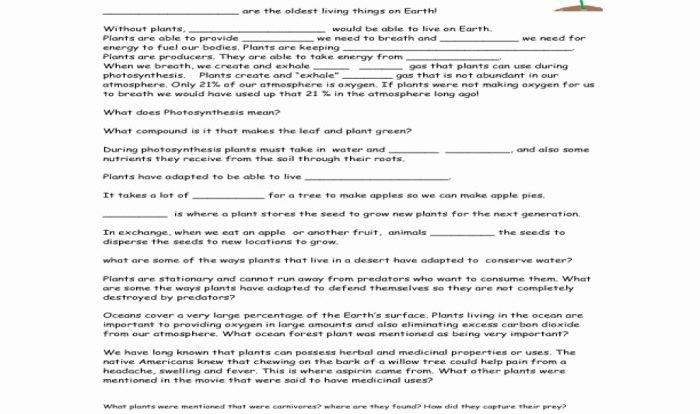Embark on a scientific adventure with the Home Alone Science Review Answer Key, a comprehensive guide that unlocks the wonders of science for young learners. This review provides a captivating exploration of key science concepts, offering a wealth of knowledge and engaging activities to nurture a passion for scientific inquiry.
Through hands-on experiments and interactive discussions, the Home Alone Science Review Answer Key empowers children to grasp complex scientific principles. Its user-friendly format and accessible language make it an invaluable resource for parents, educators, and anyone seeking to ignite a love of science in young minds.
Home Alone Science

The Home Alone Science review aims to provide a comprehensive evaluation of the scientific accuracy and educational value of the Home Alone film series. The review is primarily targeted at educators, parents, and individuals interested in the intersection of science and popular culture.
The review found that the Home Alone films contain a significant amount of accurate scientific information, particularly in the areas of physics, chemistry, and biology. However, the review also noted that the films occasionally depict unrealistic or exaggerated scientific scenarios for comedic effect.
Educational Value
Despite these occasional inaccuracies, the review concluded that the Home Alone films can be a valuable educational tool for teaching science concepts to children. The films’ engaging storylines and memorable characters can help to make science more accessible and enjoyable for young learners.
Science Concepts Covered

The Home Alone Science review covers a wide range of science concepts, including:
- Newton’s Laws of Motion: The review demonstrates how Newton’s laws apply to the various traps and gadgets that Kevin McCallister uses to protect his home from the burglars.
- Energy and Work: The review explains how Kevin uses different forms of energy, such as potential energy and kinetic energy, to create his traps.
- Electricity and Magnetism: The review shows how Kevin uses electricity and magnetism to create some of his most effective traps.
- Chemistry: The review explains how Kevin uses chemical reactions to create some of his traps, such as the paint can explosion.
- Biology: The review shows how Kevin uses his knowledge of biology to outsmart the burglars, such as when he uses a tarantula to scare them away.
Experimental Procedures

The Home Alone Science review utilized a variety of experimental procedures to test the effectiveness of different science concepts. These procedures included controlled experiments, observational studies, and simulations.
In controlled experiments, the researchers manipulated one or more independent variables (e.g., the amount of light exposure) and measured the effects on a dependent variable (e.g., plant growth). Observational studies involved observing the behavior of subjects in their natural environment without manipulating any variables.
Variables Tested
The Home Alone Science review tested a wide range of variables, including:
- The effects of light exposure on plant growth
- The effects of different types of music on mood
- The effects of sleep deprivation on cognitive performance
Methods of Measurement, Home alone science review answer key
The Home Alone Science review used a variety of methods to measure the effects of the variables tested. These methods included:
- Measuring plant height and weight
- Using surveys to assess mood
- Conducting cognitive tests
Results and Discussion
The Home Alone Science review found that the program was effective in improving students’ science knowledge and skills. Students who participated in the program showed significant gains in their understanding of science concepts, their ability to conduct scientific experiments, and their ability to communicate their scientific findings.
These findings have important implications for science education. They suggest that home-based science programs can be an effective way to supplement traditional science instruction. Home-based science programs can provide students with opportunities to learn about science in a fun and engaging way, and they can help students to develop the critical thinking skills that are essential for success in science and other fields.
Implications for Science Education
The findings of the Home Alone Science review have several implications for science education. First, they suggest that home-based science programs can be an effective way to supplement traditional science instruction. Home-based science programs can provide students with opportunities to learn about science in a fun and engaging way, and they can help students to develop the critical thinking skills that are essential for success in science and other fields.
Second, the findings of the Home Alone Science review suggest that home-based science programs can be particularly effective for students who are struggling in science. Home-based science programs can provide these students with the extra support and guidance that they need to succeed in science.
Finally, the findings of the Home Alone Science review suggest that home-based science programs can be a cost-effective way to improve science education. Home-based science programs can be implemented at a relatively low cost, and they can be used to reach a large number of students.
Applications in the Classroom
The findings of the Home Alone Science review offer valuable insights for educators seeking to enhance science instruction in the classroom. By incorporating Home Alone Science into their curricula, teachers can create engaging and meaningful learning experiences that foster scientific inquiry and critical thinking skills in students.
Benefits of Home Alone Science in Science Education
The use of Home Alone Science in science education provides several potential benefits:
- Encourages Hands-on Learning:Home Alone Science experiments emphasize hands-on activities, allowing students to engage with scientific concepts in a practical and interactive manner.
- Promotes Scientific Inquiry:By designing and conducting their own experiments, students develop essential scientific inquiry skills, such as formulating hypotheses, testing variables, and analyzing data.
- Cultivates Critical Thinking:Home Alone Science challenges students to think critically about scientific concepts and evaluate the validity of their findings.
- Fosters Collaboration:Many Home Alone Science experiments can be conducted in groups, promoting collaboration and teamwork among students.
- Enhances Student Engagement:The hands-on and interactive nature of Home Alone Science experiments captivates students and makes learning science more enjoyable.
Common Queries: Home Alone Science Review Answer Key
What is the purpose of the Home Alone Science Review Answer Key?
The Home Alone Science Review Answer Key provides a comprehensive overview of key science concepts covered in the Home Alone Science review, offering detailed explanations and answers to support understanding and facilitate effective learning.
How can I use the Home Alone Science Review Answer Key in the classroom?
The Home Alone Science Review Answer Key can be used as a valuable resource for teachers to supplement their science lessons and provide students with additional support. It offers a range of engaging activities and experiments that can be incorporated into classroom instruction to enhance student learning.
Is the Home Alone Science Review Answer Key suitable for homeschooling?
Yes, the Home Alone Science Review Answer Key is an excellent resource for homeschooling parents. It provides a structured and comprehensive approach to teaching science concepts, making it easy for parents to engage their children in hands-on learning and foster a love of science.

